Research
Externally Funded Projects
Active
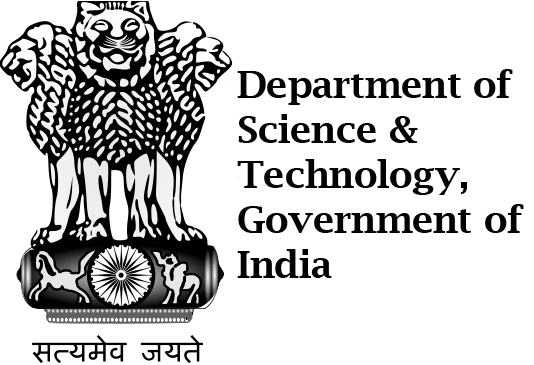
1. Functional and Structural approaches for improving bacteriophage selection and design for antibacterial therapy applications
Funding Agency: Indo-Russian grant, Department of Science and Technology, India
Duration: Dec 2024 - Dec 2027
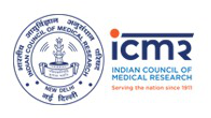
2. Sustained co-delivery of growth factor and ROS quencher for the repair and treatment of osteoarthritis
Funding Agency: Small Extramural Grant, Indian Council of Medical Research, India
Duration: Jan 2025 - Jan 2028
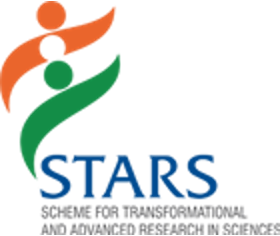
3. Synthesis of sustained-releasing rifampicin crystalline formulation for patient compliant treatment of tuberculosis
Funding Agency: STARS, Ministry of Education, India
Duration: November 2023 - October 2026

4. Development of 3-dimensional necrotic tuberculosis granuloma mimic for studying lineage-specific drug efficacy
Funding Agency: Wellcome-Trust/DBT India Alliance, Intermediate fellowship, UK/India
Duration: January 2021 - December 2026
Past funders
Ramanujan Fellowship, Department of Science and Technology, India
Early Career Research Award, Science and Engineering Research Board, India
Biotechnology Industry Research Assistance Council, India
Bill & Melinda Gates Foundation
Private Funds
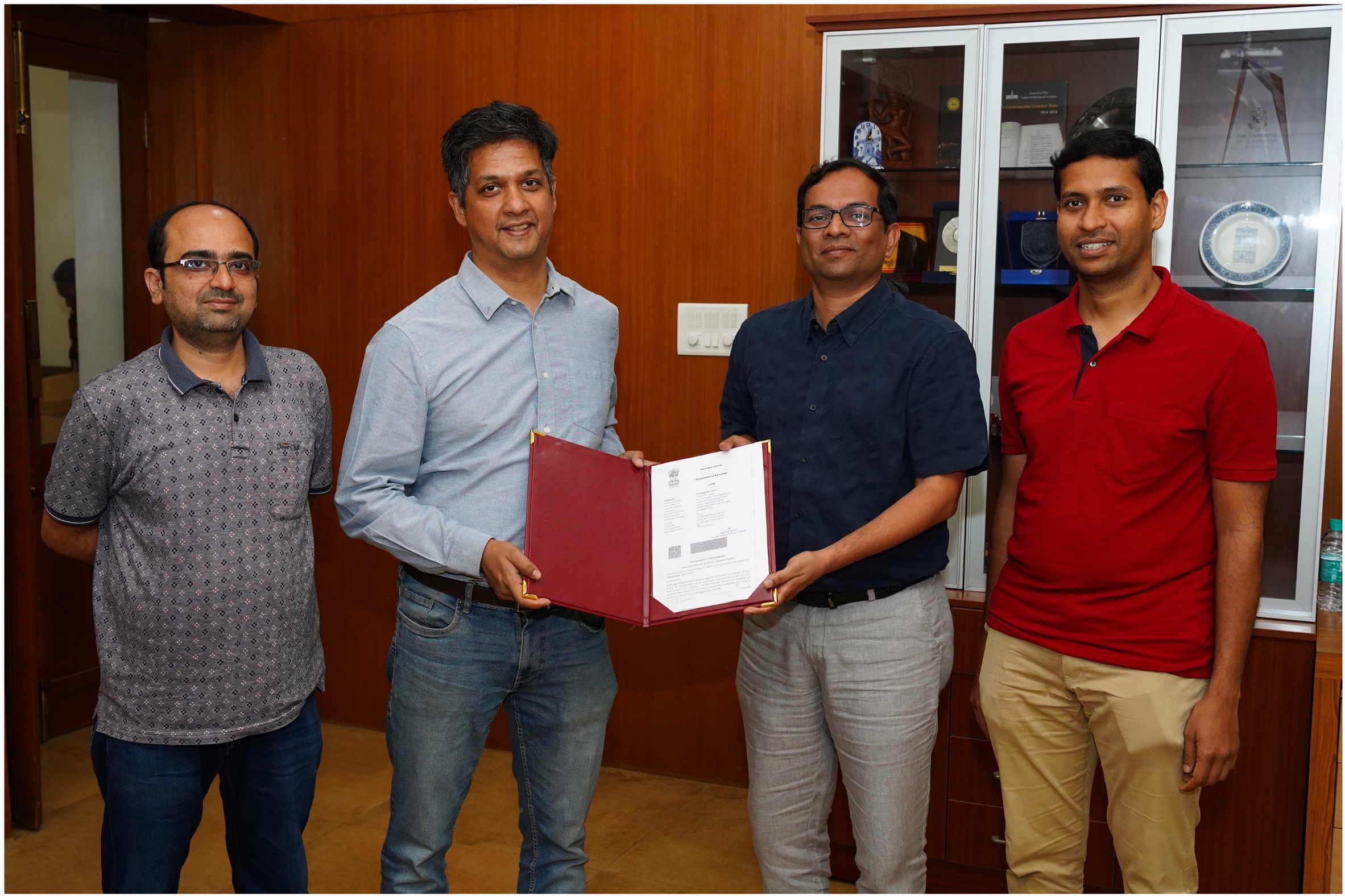
If you are interested, you could support our research by donating through http://www.odaa.iisc.ac.in/. Contact rachit@iisc.ac.in for more information.
Research Areas
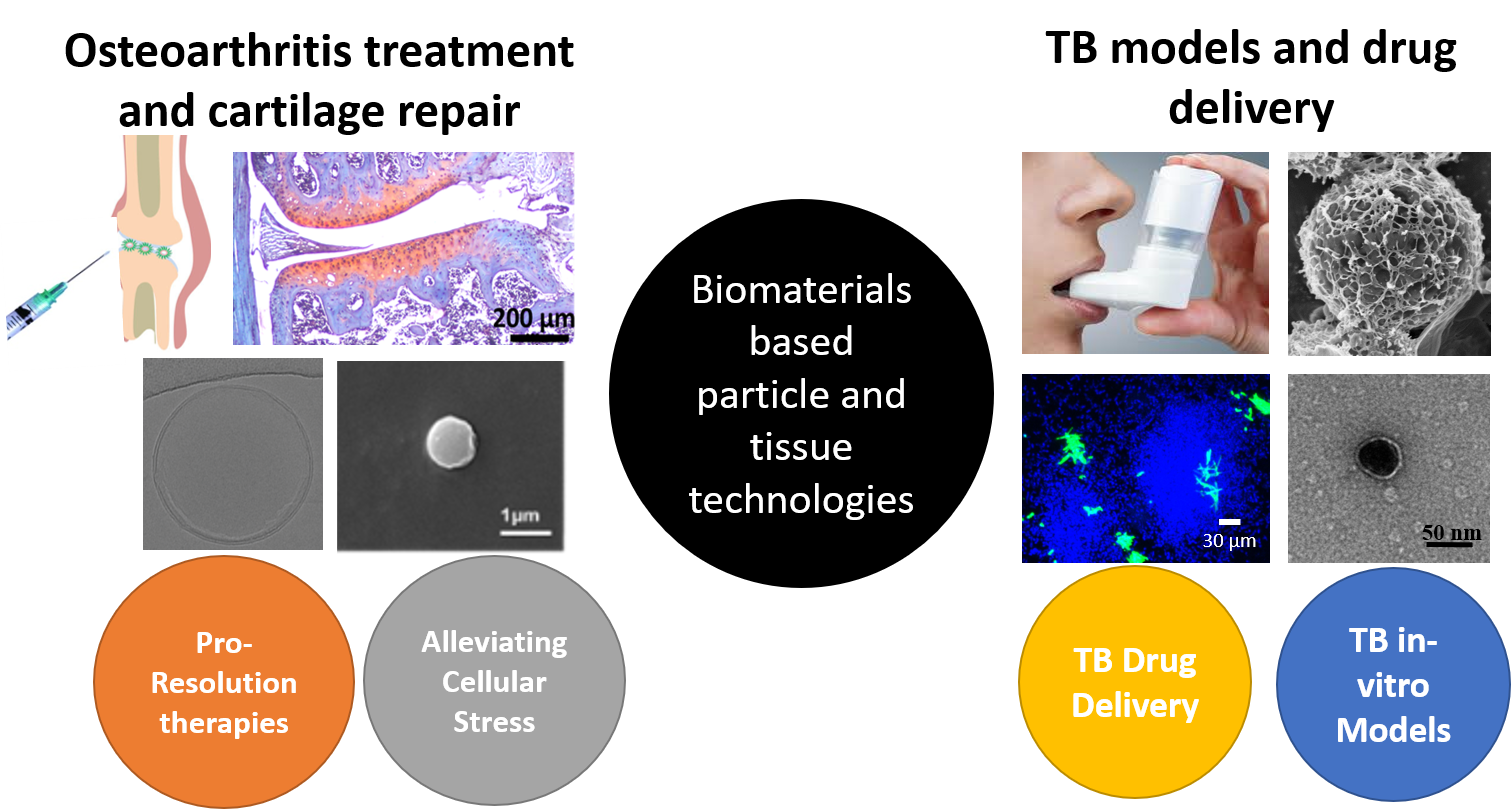
Biomaterial approaches for treatment of Tuberculosis
Despite being a curable disease, Tuberculosis (TB) has been the cause of most mortality worldwide due to an infectious disease over the last decade. With the emergence of drug-resistant strains, there is a severe need to develop effective cures for TB. Our focus is to utilize biomaterials to generate new mechanistic understanding of TB granuloma formation and develop efficient drug delivery strategies
1. In-vitro models of TB granuloma: We previously developed a culture system for mammalian cell infection with Mtb which closely mimics the gene expression and phenotype of cells in human samples. We are now developing large (millimetre length scales) organoids of TB granuloma by careful combination of material to closely mimic the human lung along with bacteria and Peripheral blood mononuclear cells (PBMC) from humans. These organoids can then open an area of research to understand divergent outcomes in humans after Mtb exposure such as latent vs active TB.

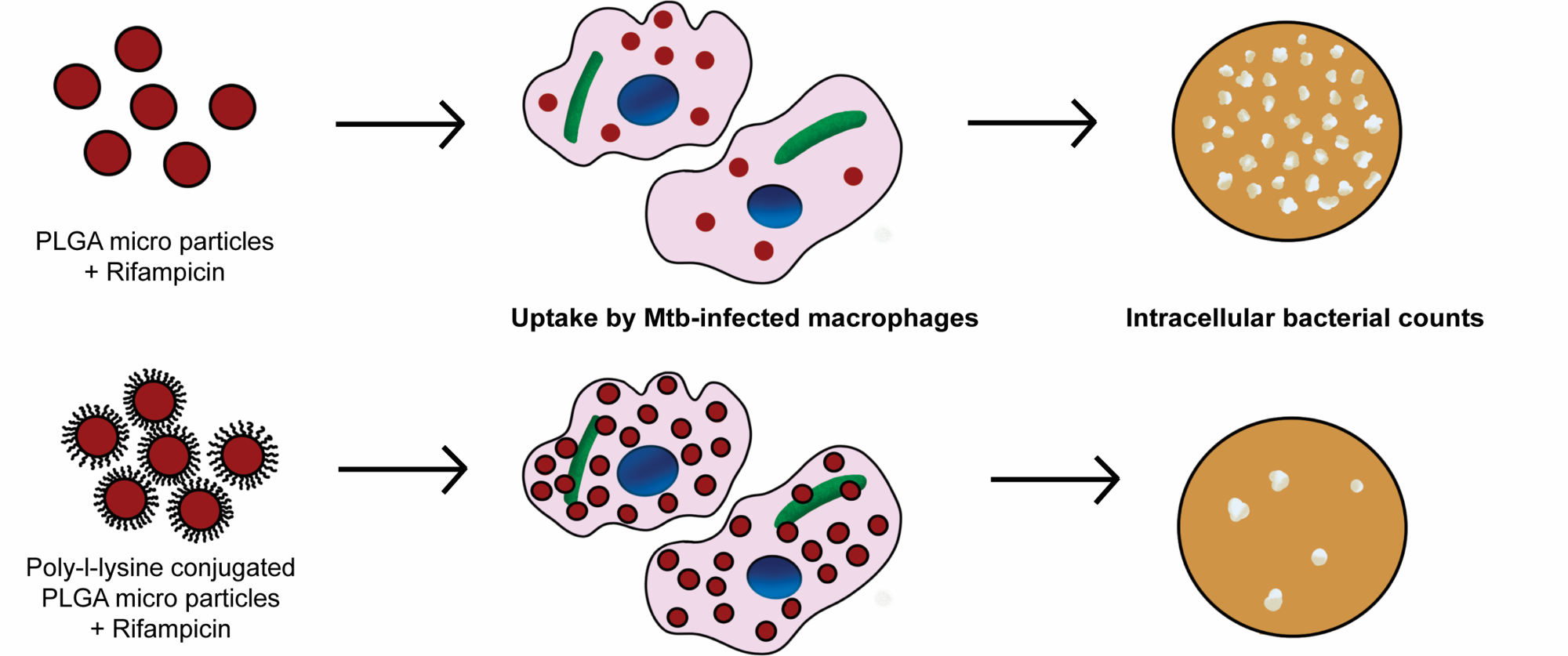
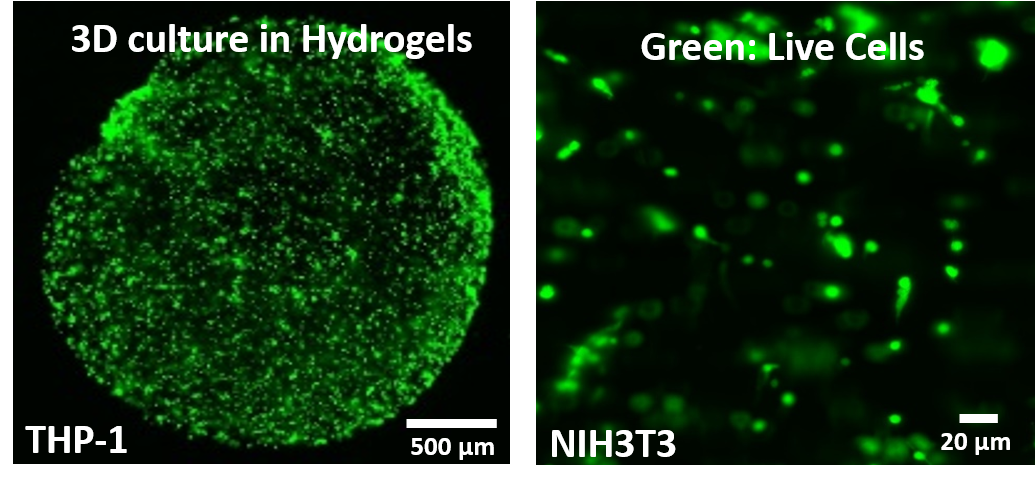
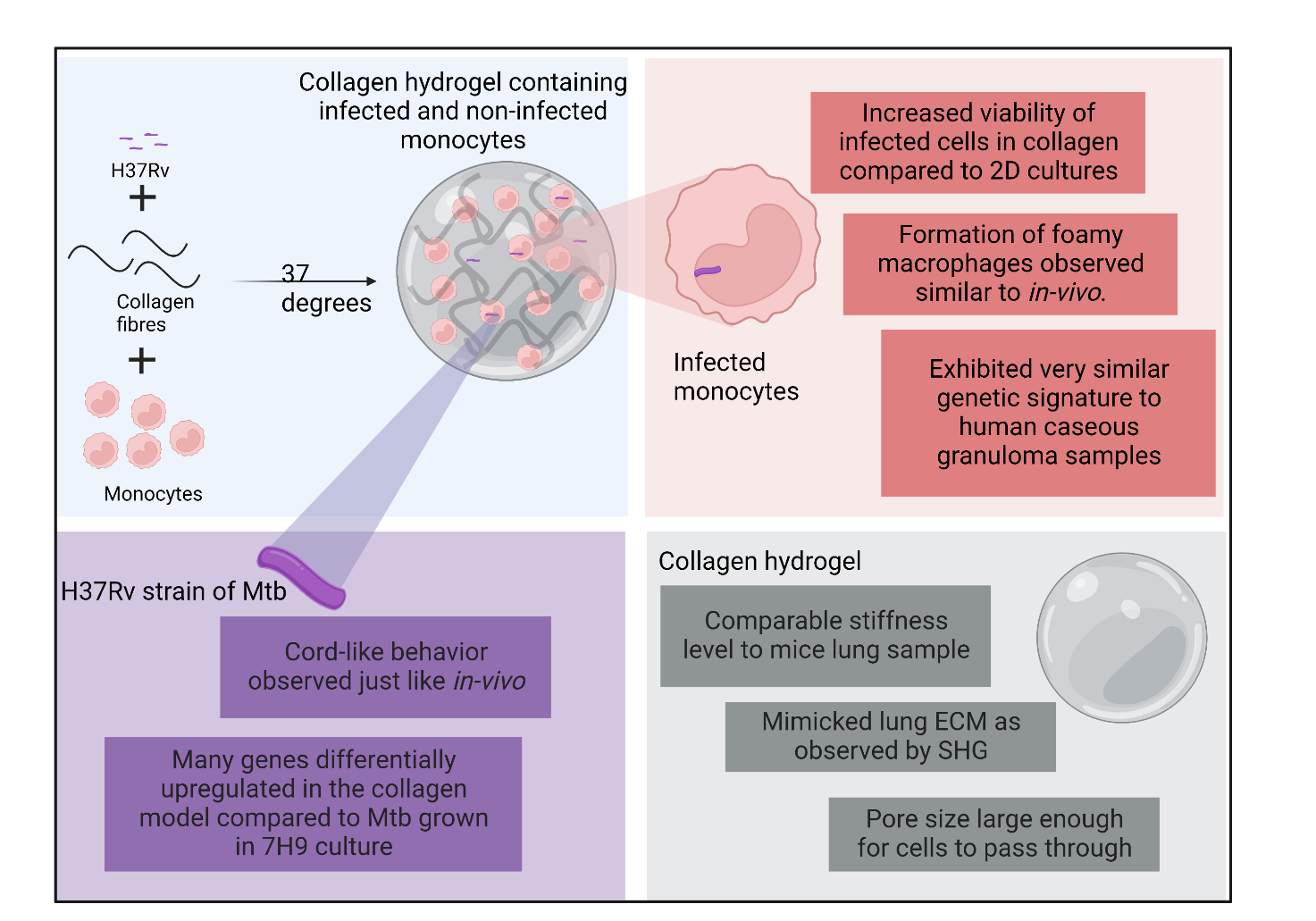
Drug delivery for Osteoarthritis
Osteoarthritis (OA) is characterized by progressive degradation of cartilage, typically in load-bearing areas of one or more joints. OA results in decreased chondrocyte viability and increased proliferation, altered matrix synthesis, and increased levels of pro-inflammatory cytokines such as interleukin-1beta and tumor necrosis factor (TNF)-alpha, resulting in elevated production of matrix degrading enzymes and reactive oxygen species. Our approach to OA drug delivery is currently based on two strategies.
1. As OA is regarded as a chronic inflammatory disease, therefore, reduction of inflammatory processes during OA progression represents a promising avenue for the treatment of OA. Hence we are developing carriers for controlled delivery and retention of inflammation resolving drugs for reduction of inflammation and OA progression. We have used resolvin D1 and shown that sustained delivery of such molecules can be used to treat OA.
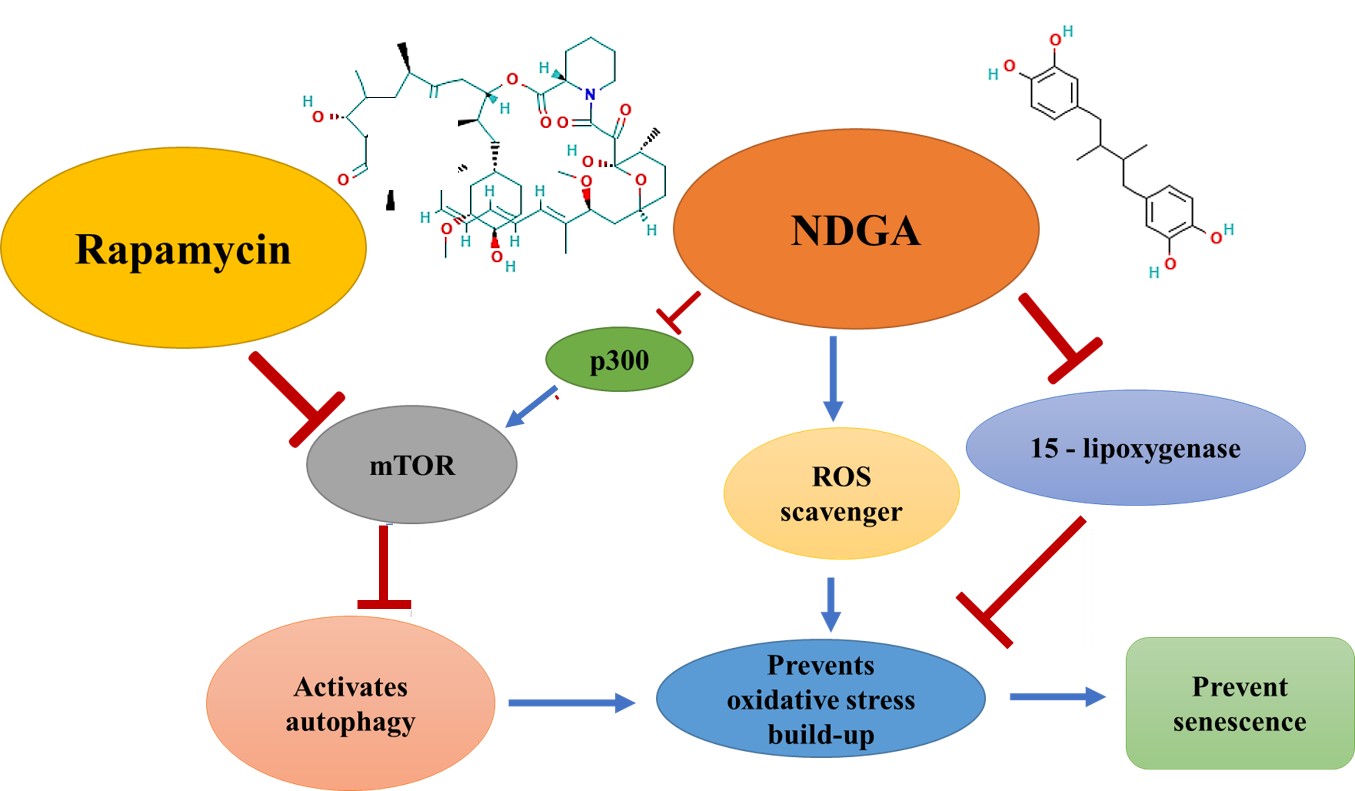
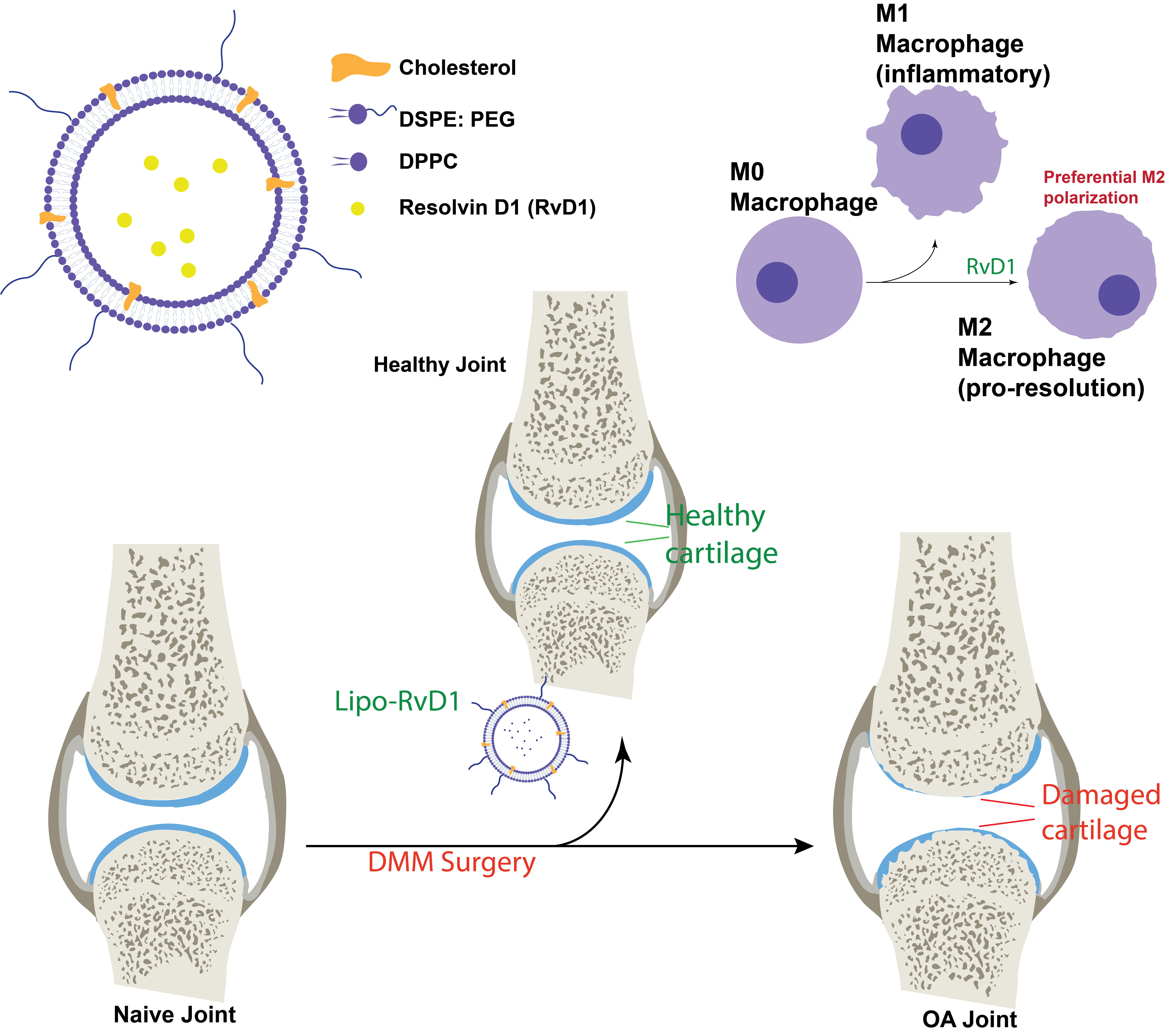
Teaching
BE210 Drug Delivery: Principles and Applications
This 3-credit course is taught in August semester. This course aims to introduce concepts of drug delivery for medical challenges. The course is designed to be modular, with each module focusing on the following topics: Diffusion and permeation of drugs in biological systems; Pharmacokinetics and pharmacodynamics; Challenges and strategies for various drug delivery routes; Drug delivery systems: polymer‐drug conjugates, matrix based systems, reservoir and erodible systems; Responsive and targeted delivery systems; Nanotoxicology and Regulatory pathways. Course is open to all students registered for a PhD programme at IISc and to undergraduates who have completed their 2nd year.
Note: This course is also offered through the online NPTEL platform for everyone in the world. To check it out click here and here
BE206 Biology for Engineers
The course provides an introduction to fundamental concepts in Biology for PhD students with little to no knowledge of Biology past 10th or 12th standard school curriculum. The course will cover the following topics: biomolecules, fundamentals of biochemistry, protein structure and function, basic molecular biology, genetics, and an introduction to the cellular architecture. A combination of theoretical concepts and basic experimental methodologies in biology will be discussed. In addition, an introduction to how cells form tissues will be covered, which includes lectures on classification of tissues. The concepts covered here will aid in the skill development required to study diverse problems in bioengineering.
BE214 Fundamentals of Bioengineering
This course covers essentials of biomaterials and cell and tissue mechanics. It caters to those who want to get first exposure to the topics, which lays the foundation for advanced courses in these two topics.
Part I of the course will cover biomaterials: polymers (synthesis and properties), metals, ceramics, biocompatibility, biodegradability, key properties of biomaterials (mechanical, chemical and physical properties), protein adsorption, host response to biomaterials (innate immune response, blood coagulation and complement response), fibrosis, implant associated infections, drug delivery, tissue engineering
Part II of the course will cover cell and tissue mechanics: Cell and tissue types, Viscoelasticity of cells and tissues, mechanics of cells: cytoskeleton: contractility and movement, molecular motors for transportation within the cells, Signal transduction within the cells to achieve basic mechanics, cellular forces, stiffness sensing of cells, wound healing, mechanics of multi-joint posture and movement control